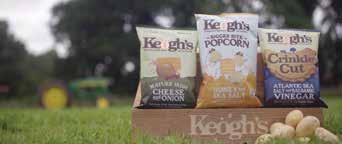
30 minute read
What’s New
KEOGH’S FARM SPONSORS RTE’S ‘IT’S A PARK’S LIFE’
KEOGH’S Farm is to sponsor RTE’s ‘It’s a Park’s Life’, which kicked off for a second series on RTE1 on September 17. The six-part 30-minute series returned to one of Europe’s largest city parks to share the magic of the Phoenix Park and its largerthan-life characters, for whom the park is part and parcel of daily life. According to Tom Keogh of Keogh’s Crisps and Popcorn, “Consumer habits have changed over the past six months and parks have become central as a social occasion. We’ve seen a shift in purchasing habits where people are catering for picnic moments and valuable time with close friends and family, where our crisp and popcorn brand fit perfectly.”
MILKYBAR LAUNCHES COOKIES & CREAM SHARING BLOCK
MILKYBAR, the number one white chocolate brand, has launched a new addition to its range, Milkybar Cookies & Cream. The 90g sharing bar features creamy-tasting, smooth white chocolate studded with delicious, crunchy cookie pieces. “Milk and cookies is a classic combination for a reason, and we believe our deliciously creamy-tasting white chocolate makes it unbeatable!” noted Maria McKenna, Marketing Manager for Nestlé Ireland Confectionery. “We are always looking for new ways to innovate and delight fans, and we hope they love this new sharing block as much as we do!”

THE brand-new official Fortnite Black Frame series sticker collection from Panini is packed with exciting content and special materials, a must-have for all Fortnite fans. Fortnite is a game from Epic Games that drops you on an island full of battles and experiences. Battle solo or as a team to outlast everyone else or create your own worlds with your own rules. Find out more at Fortnite.com. Panini brings together all the thrills and action of the online video game in this unmissable collection. In this official Fortnite sticker collection, there are a total of 368 stickers, including 240 special stickers to collect and swap! Fortnite fans can begin their collection with a starter pack, which includes an album and 26 stickers.

CARDBOARD-plastic combinations as a sustainable packaging choice are helping to reduce plastic consumption, while at the same time ensuring high-quality appearance and stability. In addition, they offer extended marketing opportunities as the inside of the cardboard wrap can also be printed. Dungannonbased Greiner Packaging’s K3 tub saves up to 33% plastic when compared to other pots of the same size, and is made with a minimum of 30% recycled PET (r-PET). The K3 cardboard wrap can be produced with virgin or recycled board produced from sustainably managed forests, with full Forest Stewardship Council chain of custody accreditation. Greiner Packaging’s K3 enhances shelf-impact through offering unique shapes and diverse finishing options, with a wide range of cup and tub sizes, including the new fridge friendly rectangular pack. For more information, visit greiner-gpi.com.
LIDL EXPANDS OWN-BRAND VEGAN FRIENDLY BEAUTY RANGE
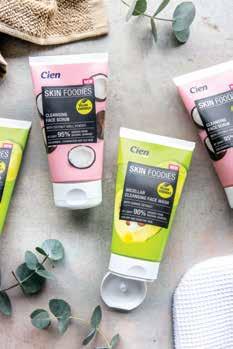
LIDL Ireland has announced the addition of some exciting new vegan friendly products to its affordable Cien everyday beauty range. From face masks to face scrubs, Lidl’s new products start at just €0.99. Lidl’s new vegan friendly Cien beauty products include Cien Skin Foodies Hand Cream (€1.99), which comes in three different variations to suit different skin types, Cien Skin Foodies Micellar Face Wash (€2.99) with quince extract, Cien Skin Foodies Cleansing Face Scrub (€2.99) with coconut shell powder and Cien Skin Foodies Cleansing Face Mask (€0.99) with a choice of white clay and rosemary extract or papaya extract.
Using data to navigate through the pandemic
Bord Bia has been working hard on helping the agri-food industry to negotiate a path through the Covid-19 pandemic, arming companies with data to help them to survive and thrive in a post-Covid future, as CEO Tara McCarthy explains.
THE argument all grocery retailers had a field day during the last six months of dealing with Covid-19 is simply untrue, according to Tara McCarthy, CEO, Bord Bia. “There was a perception that anyone involved in food retail was flying, but that wasn’t the case because the way consumers shopped changed,” the Bord Bia chief reveals. “They preferred to go for long-life, for frozen, for ambient products, while other sectors suffered.” Certain categories didn’t enjoy any upsurge and, in fact, struggled amid the pandemic. “Any unwrapped sectors, like loose bakery, were hit disproportionately, as were over-thecounter sectors in-store, so consumers may have been nervous going to the fish counter but would have bought pre-packed fish instead, for example,” McCarthy explains. “Products with short shelf-life also suffered, as consumers were suddenly going to the supermarket once every 7-10 days, and would only buy one product during that time, rather than every couple of days.” It is fair to say that the Irish economy, including the agrifood sector, while not unrecognisable from nine months ago, is in a very different place, thanks to the global pandemic, which has left no aspect of Irish society untouched. Recently released CSO data shows a 2% decline in Irish food and drink exports for the year to date (January to May). Domestically, while food and drink production and distribution was viewed as an essential service and thus allowed to trade through the lockdown, the overnight disappearance of the foodservice industry has been a huge blow – Bord Bia’s White Paper on foodservice predicted that the industry would drop in value from €8.5 billion in 2019 to between €3.5 and €4.7 billion this year. The Bord Bia CEO commends the Irish food and drinks
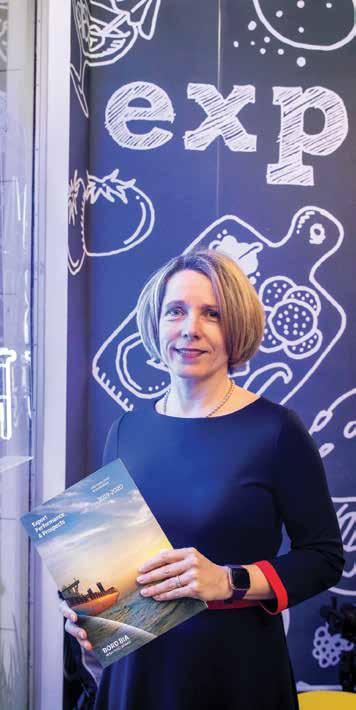
industry for the “huge effort” it made to ensure continuity of production, which meant massive changes to systems to incorporate social distancing measures into operations, while many marketing and service functions had to work remotely, bringing extra complexity. Bord Bia itself had to amend auditing procedures for the Bord Bia Quality Assurance programme, so audits could take place remotely, with information updated digitally. But the changes wrought by Covid were far greater than merely amending production or auditing systems. “Looking at it globally, the route to market was significantly and severely disrupted overnight. You had millions of consumers locked in their homes, supply chains that were required to change because there was a very different flow to demand,” McCarthy notes. “People still needed to eat so there was a huge boost in retail, but the foodservice sector closed down completely – there were winners and losers, depending on the categories. “From a sectoral perspective, the closure of restaurants had a huge impact on high value premium products like shellfish, fillet of beef etc, which were hit disproportionately,” she continues. “Consumers were buying lots of mince for familiar favourites like Cottage Pie or Spaghetti Bolognese but weren’t sitting down to steaks, which had a big impact on the carcass balance of the beef industry, as the high value parts of the animal decreased, which impacted the overall value of the animal, and the farmer suffered.” The alcohol industry too was impacted, with the closure of the pub trade. The sector has also experienced the most significant year-to-date export decreases, with exports down 21% to €463m from January to May. “When it comes to alcohol, people drink very differently in the pub compared to at home, so for some alcohol suppliers, their route to market was severely impacted,” Tara explains. “Many distillers pivoted to start supplying alcohol disinfectant and hand sanitisers in the short-term emergency stage, but other sectors, like artisan beer, were affected disproportionately, as their main market is in bars and restaurants rather than supermarkets.” Seafood exports are second only to alcohol in terms of export decline for the year to date (down 17% to €205.5m; however, the May versus May trend indicates a return of demand. This can be seen particularly in our core European markets, which are up 14.6% to €35.4m for the month of May.
Navigating Change
One of the big challenges for Bord Bia, when the pandemic hit, was pivoting its programme of events etc: “Overnight, trade

Tara McCarthy, CEO, Bord Bia: “Covid was like a fog that came down on top of the entire globe, and all of the icebergs that we were navigating around pre-Covid were still there.”

shows were cancelled, buyer visits weren’t possible, seminars and events like Bloom in the Park were not happening, so we had to change our work programme, bring those big budgetary decisions to our board, which we have done every month since lockdown to ensure our programmes remain relevant – what we believed was a great idea last January is not possible to implement now - so we are constantly re-evaluating how best to proceed.” One important element of Bord Bia and the Department of Agriculture, Food and the Marine’s work are trade missions to priority markets. With international travel restrictions in place, Bord Bia and the Department (DAFM), are planning the first ever virtual trade mission. Taking place in autumn, the trade mission will target 150 trade buyers across Vietnam, South Korea, the Philippines, Indonesia and Malaysia. Additional virtual trade engagements are planned by Bord Bia, in partnership with DAFM, to target key customers across China, Japan, North America, the Middle East, Asia and Europe throughout September, October and November. Bord Bia launched its ‘Navigating Change’ programme in the early days of the pandemic, “when everybody was knee-deep in the unknown and looking to understand what was happening”. The initiative has three stages. companies, so they could see from different perspectives and learn from different markets.”
2. Support: ““We translated all of that information from sectors, insights and markets into the supports we felt companies needed. Those supports have continuously evolved and include webinars and mentoring, covering topics like ‘how do I behave differently in this new market?’,
‘how do I get a new listing in the current environment?’,
‘how do I move my business online?’.”
3. Beyond Covid: “Covid was like a fog that came down on top of the entire globe, and all of the icebergs that we were navigating around pre-Covid were still there; Brexit hadn’t gone away, sustainability as a challenge and opportunity hadn’t gone away, the requirement for insight and innovation hadn’t gone away. But nobody had time to think of these things because we were deep in the fog of Covid at the time.”
The Bord Bia website attracted increased traffic both from consumers and businesses, who were hungry for information and new skills. During the pandemic, Bord Bia organised 40+ webinars with more than 2,600 viewers, for example, including two UK-focused supply chain webinars and a global supply chain webinar, with 139 attendees. Meanwhile, their small
business mentoring pilot project had 10 companies and the business continuity mentoring had 20 companies involved. To understand the changes to the market, Bord Bia created a future proofing programme with their insights team, looking at all of the indicators of change. “This wasn’t about sentiment, which was volatile,” Tara notes. “We wanted to see what people were actually doing. We classified it under three headings: general behaviours, shopping behaviours and consumption behaviours.” Bord Bia identified these behaviour indicators across the globe and subsequently undertook a series of eight future proofing toolkits for Ireland, UK, USA, Germany, France, Spain, Japan and China for the meat and dairy sectors. Indeed, 80 client companies attended the Future Proofing launch webinar. “It takes 66 days to form a habit,” explains Tara. “We were locked down for more than that so we wanted to see what habits were being formed and how sticky were these habits, so that the habits that were sticking could be embedded into the marketing of the Irish food industry, in terms of innovation, security, quality assurance etc. That has been hugely valuable for our industry as we brief them on the new messaging they must give to their customers.”
Insights into consumer behaviour
Some of the insights are fascinating, including the tendency of consumers towards ‘shielding’. Externally, that means wearing face-masks, hand-washing, sanitising, observing coughing and sneezing protocol, social distancing etc, but the Bord Bia chief explains that consumers are also doing everything to ‘shield’ on the inside by eating better, healthier foods. In the early stages of the pandemic, for example, orange juice commodity prices went through the roof as consumers sought out the drink in their millions. “How do you, as an industry, reflect on that shielding dynamic and how sticky will that behaviour prove to be postpandemic?” Tara wonders. “We believe that there is a real opportunity for companies to highlight the functionality of the foods they are providing to consumers.” The fact that everyone was eating at home and many were cooking meals from scratch also meant that families began to buy better quality foods. “In lockdown, people weren’t going to restaurants or food-to-go but they traded up to better quality meat and vegetables at home. That is a fantastic opportunity for the Irish food and drink industry to speak to its credentials of natural, grass-fed etc.” The digital revolution was incredible to behold during the pandemic, from virtual meeting rooms to online shopping: “Grandparents who would never have touched their mobile phone are now able to make Zoom calls, for example, and we are all shopping online much more. How sticky will that be and how do we as an industry communicate to our customers and consumers online?”
“We have statistics to highlight all of these trends and we put them up very quickly on our website, by country, by sector etc, trying to give companies as much fresh data continuously, to equip them to go to their buyers with really relevant messaging.”
The second phase of coping with Covid
The Bord Bia CEO explains that phase one of their Covid response was based around understanding the challenge, providing supports and looking at future-proofing the market. Phase two is about reassurance, recovery and growth: “Our companies and customers are going to need reassurance, which is why the latest data is important; they’re going to need the support to recover and find new opportunities, particularly in foodservice, and we see ourselves as partners to help them rebuild and identify where growth will come from. That is now where we are working, looking at reinventing and creating opportunities to inspire and delight customers and convert that into sales post-Covid.” The organisation is putting in place concrete programmes targeting key markets and sectors, such as the recent development of a pan-European steak promotion with three clients and 22 key customers across the continent. Bord Bia recently prepared 150 companies for the new reality of virtual business pitching as part of its ‘Perfecting the Virtual Pitch’ workshop and is currently working with a number of Irish drink exporters in preparation for the organisation’s first ever online trade show, scheduled to take place in Berlin this autumn.
The shadow of Brexit
Is there a danger amid all the worry over Covid that Brexit will not get the focus it deserves? Not according to the Bord Bia CEO. “As an agency, we never took our foot off the pedal when it came to our programmes on Brexit, despite Covid,” she stresses. “We continued to run our customs readiness programmes, our supply chain programmes etc, but we just moved them online.” Reassuringly, results from Bord Bia’s recent Readiness Radar reveal that more than 91% of companies have made progress on Brexit preparedness, and Bord Bia recently noted an upsurge in attendees at their online Brexit seminars as the negotiations gain traction once again in the media; so far, 152 companies have completed the Custom Readiness programme in 2020. 128 companies took part in the Readiness Radar; 447 people viewed the virtual event from 10 different countries and 30 people were in attendance. While 91% of respondents highlighted Covid-19 as the highest priority risk facing the sector, the CEO is reassured that the second priority for businesses was market diversification. “That shows you where the absolute agenda for our food industry lies. In so many ways, the best way to protect your business against Brexit and all these other challenges is to have that focus on market diversification, and not just geographically but sectorally too, perhaps by changing the balance of your portfolio between retail and foodservice; diversification via route to market must now be part of companies’ agenda as well as geographical diversification.”
Welcome government approach
A new government sometimes means a change of approach, but the recently launched Programme for Government resonates with Bord Bia’s own goals to help the Irish food and drink industry navigate its way to a bright future. “There is a huge commitment to market diversification and growth in the market, which we very much welcome, while recognising that the only way we can win in these markets is with a data-driven approach, a fact which is recognised and appreciated by the Ministers,” Tara states. “The commitment to real action on the sustainability agenda and the biodiversity agenda is fantastic because it speaks to Ireland’s reputation.” Indeed, the CEO is enthused by the Government’s commitment: “We are delighted with this ‘one government’ approach, and the commitments to the environment, to sustainability and to talent: Bord Bia believes that the food industry needs the best people to work there. We want young people to be excited by this industry, and that is what we have been investing in over the last five-plus years. It is great to see a clearly co-operative agenda by Government.”
National Parenting Product Awards
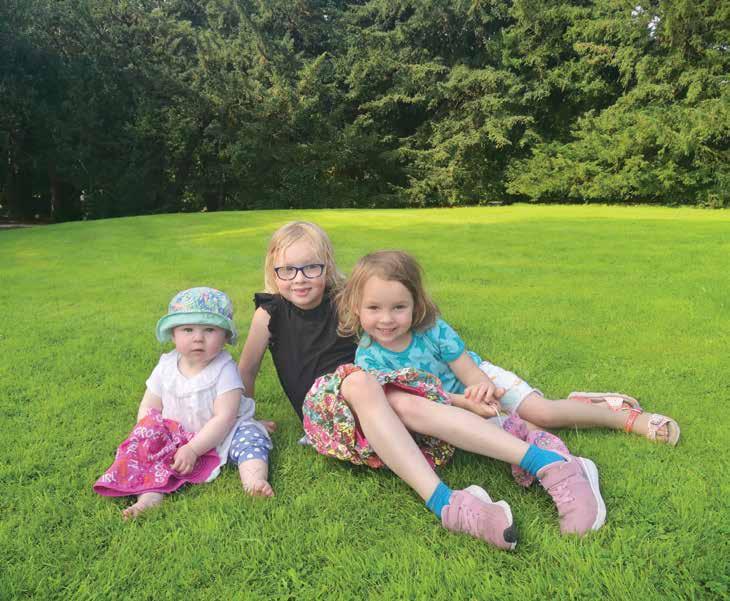
Family favourites
Ireland’s favourite family-friendly products were announced recently at the National Parenting Product Awards.
THE winners of the 2020 National Parenting Product Awards have been revealed at a virtual ceremony hosted by Ireland’s specialist parenting publisher and full-service content agency, Zahra. Now in its seventh year, the National Parenting Product Awards (NPPA) is Ireland’s only independently tested consumer awards of products and services for young families. This year, 176 products and services across 49 categories were reviewed by 3,267 parents across the nation to identify the best products currently available in the Irish marketplace.
Research findings
A new study commissioned by Zahra in partnership with Kantar was launched at the event, revealing that 67% of parents today place online availability as a key factor when it comes to purchasing a product for their children, an increase of 7% when compared to 2019’s prepandemic environment. According to the new research, Irish parents purchase with future plans in mind, with 86% influenced by whether products can be re-used for their future children. Parents also find peace of mind in the tried and and Managing Director of Zahra, tested approach, with 63% stating Gina Miltiadou said, “We are proud to that a National Parenting Product announce the winners of this year’s Award would positively influence their National Parenting Product Awards. BEST NEW PRODUCT LAUNCH 2020 decision to buy, compared to just 21% Choosing the best parenting products who say their spending choices are can be a minefield for mums and impacted by a social media influencer’s dads – especially if you’re a first-timeGOLD: BabyBoo ZippyBoo Suit recommendation. When it comes to product advice, the most-valued opinions parent in today’s challenging environment.SILVER: Maxi-Cosi Coral Covid-19 are close to home, with 66% of mums “With 49 categories, ranging fromBRONZE: Dunnes Stores Extra Soft Cotton Soft Wipes - Fragranced and dads seeking guidance from other nursery items to car products, organic parents, while over half (56%) turn to food producers and travel systems, the their doctors and nurses. awards aim to acknowledge and ease Challenging Covid-19 environment the overwhelming decisions have to make.” OUT AND ABOUT new parents Commenting on the awards, co-founder She said that this year’s event is also
BEST TRAVEL PRODUCT
GOLD: Calpol SixPlus Fastmelts (12s)
National Parenting Product Awards
testament to local businesses who are “continuing to adapt with courage to create the products and services that parents need most – and they should be celebrated and rewarded for their efforts in winning Irish consumers’ seal of approval”. The awards also aim to offer guidance to parents who might be without typical support in 2020 due to the pandemic, including being able to easily visit baby retail stores to learn more about the best products available for their children.
Big winners
SuperValu was named Best Family Friendly Supermarket at the Awards, with Aldi Ireland in Silver and Lidl Ireland in Bronze Position. Other notable winners included Freddy Fyffes Bananas, who took Gold in the Best Baby/Toddler Snack category. WaterWipes with SoapBerry was the big winner in the Best Product for Weaning. Calpol SixPlus Fastmelts (12s) took Gold in the Best Travel Product category, with Calpol Sugar Free Infant Oral Suspension (Syringe) 60ml taking Gold in the Preferred Baby Pain Relief for Teething category. The Best Baby Nappy Treatment category was won by Sudocrem Antiseptic Healing Cream, with Silver going to Bepanthen Nappy Care Ointment, while La Roche-Posay Cicaplast Baume B5 400ml took Bronze.
Aldi Ireland won big at the Awards, with its Mamia brand
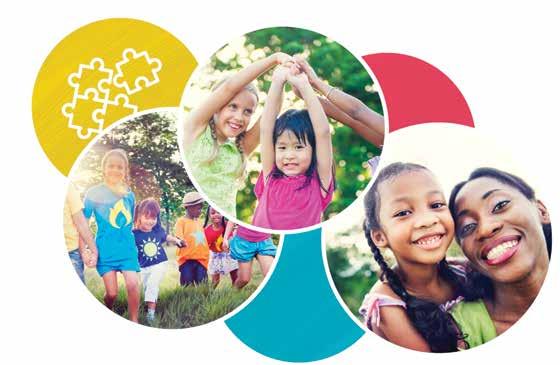
taking home a number of awards, including winning Gold, Silver and Bronze in the Best Bath Time Toiletry Product category, with Mamia Naturals Baby Hair & Body Wash taking the top award. Mamia nappies took home a number of awards, including Best Baby Newborn Essential, while the Mamia Organic Baby Food Range took gold in Best Organic Baby Food. To see the full list of this year’s winners, visit: www.nppa.ie.
Bananas still top choice baby snack
IT’S official. For the sixth year in a row, bananas are top of the list for Irish parents when it comes to choosing a snack food for their baby or toddler, according to the results of the National Parenting Product Awards. Based in large part on a survey conducted by Millward Brown amongst parents and experts in Dublin, Cork and Limerick, Irish banana importer Fyffes’ popular ‘Freddy Fyffes’ pre-packed bananas emerged as the Gold Award
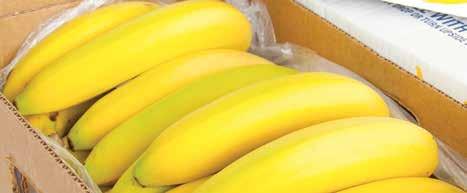
winner in the Food and Feeding section of the competition. Accepting the award at a virtual prize-giving ceremony, which was hosted live online, Fyffes Marketing Manager, Emma Hunt-Duffy thanked competition organisers, noting: “It’s great to see that the natural and nourishing qualities of bananas continue to be recognised and appreciated, especially at a time when parents are so conscious of the food their children are eating.”

Fyffes’ popular ‘Freddy Fyffes’ pre-packed bananas emerged as the Gold Award winner in the Best Baby/Toddler Snack category of the Food and Feeding section of the National Parenting Product Awards.
In-Store Efficiency
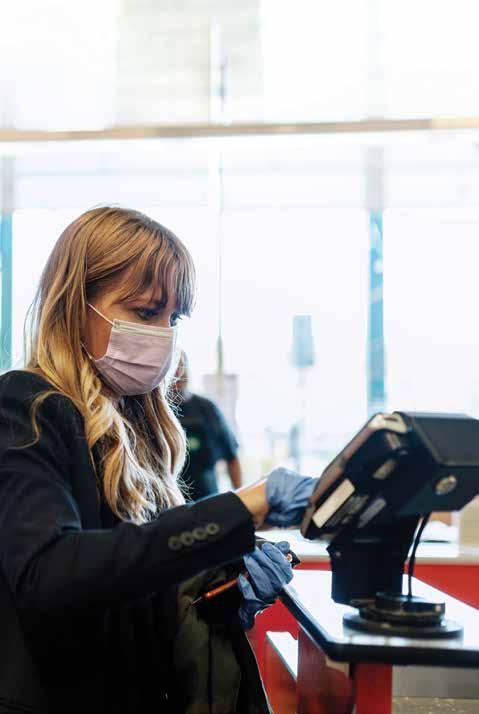
Speeding up transaction times!
Simon Hedaux, founder and CEO of Rethink Productivity, advises on five ways to speed up transaction times in your store.
THE experience of paying is a moment of truth in the customer journey that often influences how likely customers are to visit the retailer again. The tricky thing is that customers want different things on different days. One day, they may be in a hurry and want to get their essentials as fast as they can. Another day, they might enjoy a chat. It’s important to keep the operational parts of the payment process as slick as possible, so it frees up time for either a fast exit or a chat. Transaction times matter for retailers too. The two biggest chunks of work in a shop are handling stock and serving customers. So, it makes sense for retailers to pay attention to transaction times. Looking for speed needs to be done in a smarter way than just focusing on colleague ring rate, as some grocery operators have done previously. Ring rate measures how fast a staff member scans items and driving ring rate up means customers are showered with their items as the staff member whizzes them over the scanner as fast as they can. We’re going to consider how to speed up transaction times, so it works for both customers and retailers.
1. Go contactless
From time and motion studies with many retailers, we know that the payment part of a transaction takes half the time with contactless compared to chip and pin payment. And contactless is quicker than cash too. Covid and the higher €50 transaction limit is helping drive contactless uptake for the benefit of both customers, colleagues, and retailers.
2. Parcel collection
Whether it’s your own Click and Collect offer or a third-party service, such as Collect Plus, online sales and associated parcel volumes are growing. Parcel pickup and drop-off can help drive footfall to your store and provide a useful service for local customers; however, it can also take up time if you’re not efficient. Common issues we see while advising retailers on productivity include: • Parcels being kept a long walk from the counter, so it takes ages for a colleague to walk backwards and forwards to grab the parcel; • Disorganised storage, so colleagues rummage through a mound of parcels to find the right one; • Lack of training, so some colleagues don’t know how to use the associated systems.
Our timings show that the average time for retrieval and hand-out of a click and collect parcel is about 90 seconds. That’s quite a bit longer than a typical transaction and our benchmark best for parcel retrieval is under 30 seconds. Get slick by having well organised storage as close to the tills as you can and train all your team on the process. You might have to move things around or build a new space to accommodate parcels near the till, but volumes are set to grow and customers picking up parcels often buy other things while they are in the shop too.
3. Review your till-space
For peak efficiency, it’s good to think about your till-space as a workstation and review how well it is set up and whether everything needed is to hand. For something you do as often as serving a customer, shaving seconds off the time can add up to a big savings. So small things matter. How often have you had to rummage for the right size bag in a pile of slippery plastic? Or do you need to go in search of a pen? Do your colleagues have to share devices to remove security tags or interrupt another colleague to get something they need? The adage, a place for everything and everything in its place, applies to counters and it’s worth spending time making sure everything
your colleagues need is always there and easy to get to. When we worked with a grab-andgo coffee operator, we helped improve the layout of their workstations by doing small things like tilting the paper cups towards the barista and organising different size lids so they were easy to grab. The small changes added up to them being able to serve customers so much quicker that they increased their production capacity by 25%.
4. Streamline till systems
Till systems can have a direct impact on transaction time. The biggest mistake is having cluttered screens that make it harder for colleagues to find the button they are looking for. The quickest systems show a relatively clean screen of relevant options that change interactively as the colleague works through the menu options. For example, rather than having to type in the value of cash tendered, offer options of the right amount plus the other most likely tender amounts. Switching from typing in three numbers to pressing one button is measurably quicker. Having a flip-top till drawer is quicker than one that opens towards you and forces you to step back every time. And check out your printers and receipts too. Waiting for a slow printer to get started wastes time and overlong receipts take more time to print and create additional waste paper too.
In-Store Efficiency
The payment part of a transaction takes half the time with contactless compared to chip and pin payment.
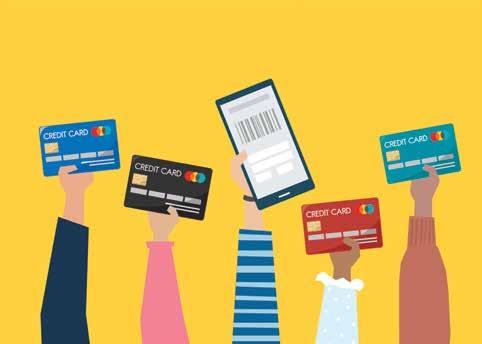
5. Technology helps
Do you want to make a big step-change in the time colleagues spend taking money? There are lots of technology options to help. We are all getting more used to self-service and provided you have enough traffic to make the investment worthwhile, self-checkout tills can transform your operation. Amazon Go stores are opening without tills and use smart RFID tech that knows what a customer has taken from the store and automatically charges them for it. It could be a while before all stores become till-free, but the use of selfscanning and check-out apps is bringing a quiet and more easily accessed revolution to grocery shopping for many. Payment is a high stakes moment of truth for your operation. To speed up transactions, you need to think small to optimise your efficiency, and think big to take advantage of the technological advances and consumer uptake of apps to transform payment.
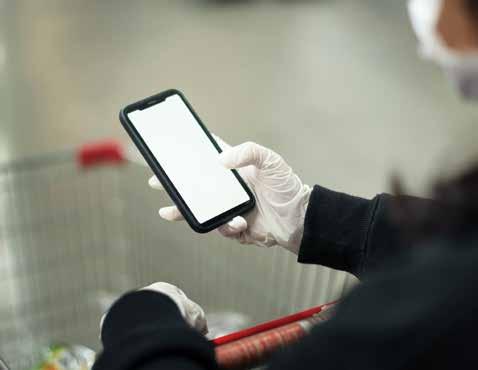

About the author:
Simon Hedaux is founder and CEO of Rethink Productivity, a world leading productivity partner which helps businesses to drive efficiency, boost productivity and optimise budgets. For more information, see rethinkproductivity.co.uk.
Waste Management
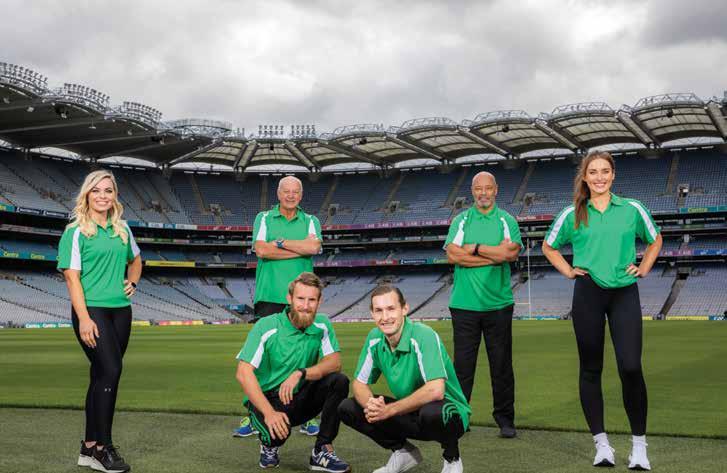
Good news for packaging recycling in Ireland
Pictured are the leaders of Repak’s Team Green initiative (l-r) Anna Geary, Bobby Kerr, Gary and Paul O’Donovan, Paul McGrath, and Roz Purcell, as they gathered in Croke Park, Dublin, before new guidelines on Covid-19 restrictions were implemented by the Government.
IRELAND’S recycling tonnes have increased by 9.1% in the last two years, according to new data released by Repak. The timeframe involved coincides with the life of Team Green, an initiative powered by Repak to support Ireland in achieving future packaging recycling targets set by the European Union. Indeed, since Repak founded its Team Green initiative in 2018, the volume of tonnes recycled has amounted to 1,314,160, enough to completely fill the Aviva Stadium over 20 times. In the last few months, the people of Ireland have demonstrated the power of working together to achieve a common goal more than ever. While the Irish public’s teamwork has been evident since the beginning of the Covid-19 pandemic, what many may not realise is how effective the nation has been in coming together to protect Ireland’s environment and improving their recycling behaviours. Repak has seen that recycling rates are up and contamination in the recycling bins are down. Over 13,000 individuals have joined Repak’s Team Green to date. These individuals have played a significant role in driving an increase in Ireland’s packaging recycling, leading to the recycling of 57,000 tonnes (9.1%) of waste packaging in just two years.

Roz Purcell, one of Repak’s Team Green leaders.

Improving recycling habits
The public have continually improved their recycling habits in the past two decades, making Ireland one of the most successful European countries for packaging recycling. Since 1997, the people of Ireland have diverted 13.3m tonnes of recyclable materials from landfill. This has led to the reduction of the country’s landfill facilities from 126 in 1997 to just three in 2020. To reach Ireland’s future packaging recycling targets under the EU’s Circular Economy Package, the public will need to continue their improved recycling behaviours. With many people now spending more time in their household, becoming better recyclers at home is crucial in ensuring Ireland continues to be a packaging recycling leader in Europe.
Leading by a Team Green example
Repak has launched a search to find Ireland’s recycling role models, with households being called upon to nominate themselves or individuals they know to become one of Repak’s Team Green leaders, by joining Repak’s Team Green, sharing an
A NATIONWIDE post-lockdown buying spree for electrical goods has seen the country’s largest recycling scheme record the biggest month in its 15-year history. WEEE Ireland recovered 3,763 tonnes of electrical waste in July, the equivalent of 12,800 fridges or 1.7m small appliances, resulting in a new national monthly e-waste record. 58% (2,200 tonnes) of large and small items came back through free collection points at retailers, which saw an 18% annual increase on last year, attributed mainly to a rapid rise in sales of electrical goods. “Both retailers and manufacturers are reporting a marked increase in sales of electrical goods in recent months, prompting a record rise in waste items being recycled at over 500 store locations throughout Ireland,” said WEEE Ireland CEO, Leo Donovan. “There was also an increase in waste recovered from local authority recycling centres, due to household clear-outs, but the real driver in this record month has come through the We’ll Take It Back retail programme.” The take back of e-waste through retailers is higher in
Ireland than in any other country in Europe, Donovan noted:
“As well as Ireland having a limited amount of local authority recycling centres compared to other European member
Waste Management
Instagram or Facebook post of the leader, and tagging @repakrecycling, as well as five other environmental champions on Instagram or Facebook. In doing so, not only will they join fellow Repak Team Green leaders, Anna Geary, Paul and Gary O’Donovan, Paul McGrath, Roz Purcell and Bobby Kerr, in leading the charge to drive an increase in Ireland’s packaging recycling rates, but they will also be in with a chance to win a €250 voucher for a Repak member of their choice. Commenting on the importance of taking individual responsibility for supporting the protection of the environment, CEO of Repak, Séamus Clancy said: “Being part of a team has taken on new meaning since the beginning of the Covid-19 pandemic. The people of Ireland have shown how we can all make a big difference by coming together. What might be surprising to some is that we’ve been making just as big a difference to the environment for some time now, by improving our packaging recycling habits in the last few years. “Since we introduced our Team Green initiative two years ago, nearly 13,000 individuals have pledged to recycle correctly. They’ve taken time to learn what materials should be disposed of in a recycling bin and that all recyclables should be placed into a recycling bin clean, dry and loose. Recycling tonnes have increased by 9.1% in the last two years, which symbolises a critical step in our journey to reaching our future packaging recycling targets. To those 13,000 people who have joined Repak’s Team Green, I thank you for making a commitment to protect our planet.” Clancy went on to note that social restrictions, regrettably, will remain part of our lives for the foreseeable future and we will continue to spend more time at home. “The environment has benefited from the reported transport reduction in the volume of CO2 emissions, but we must not forget the importance of reduction and recycling more and correctly of all resources at home also,” he said, encouraging Irish recycling leaders to sign up to Repak’s Team Green: “Change starts with each of us individually, so I urge you to play your part to look after the world around us.”
Electrical recycling hits new heights
For more information, visit repak.ie/team-green.
Leo Donovan, CEO of WEEE Ireland, celebrates a new national monthly electrical recycling record, fuelled by a nationwide post-lockdown buying spree for electrical goods.
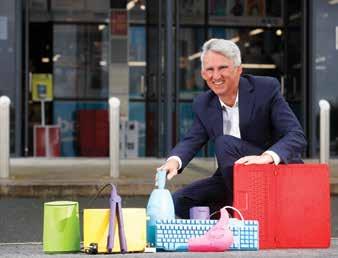
states, there is a mandatory take back requirement in place by retailers under Irish WEEE regulations.” For more information, visit weeeireland.ie.







